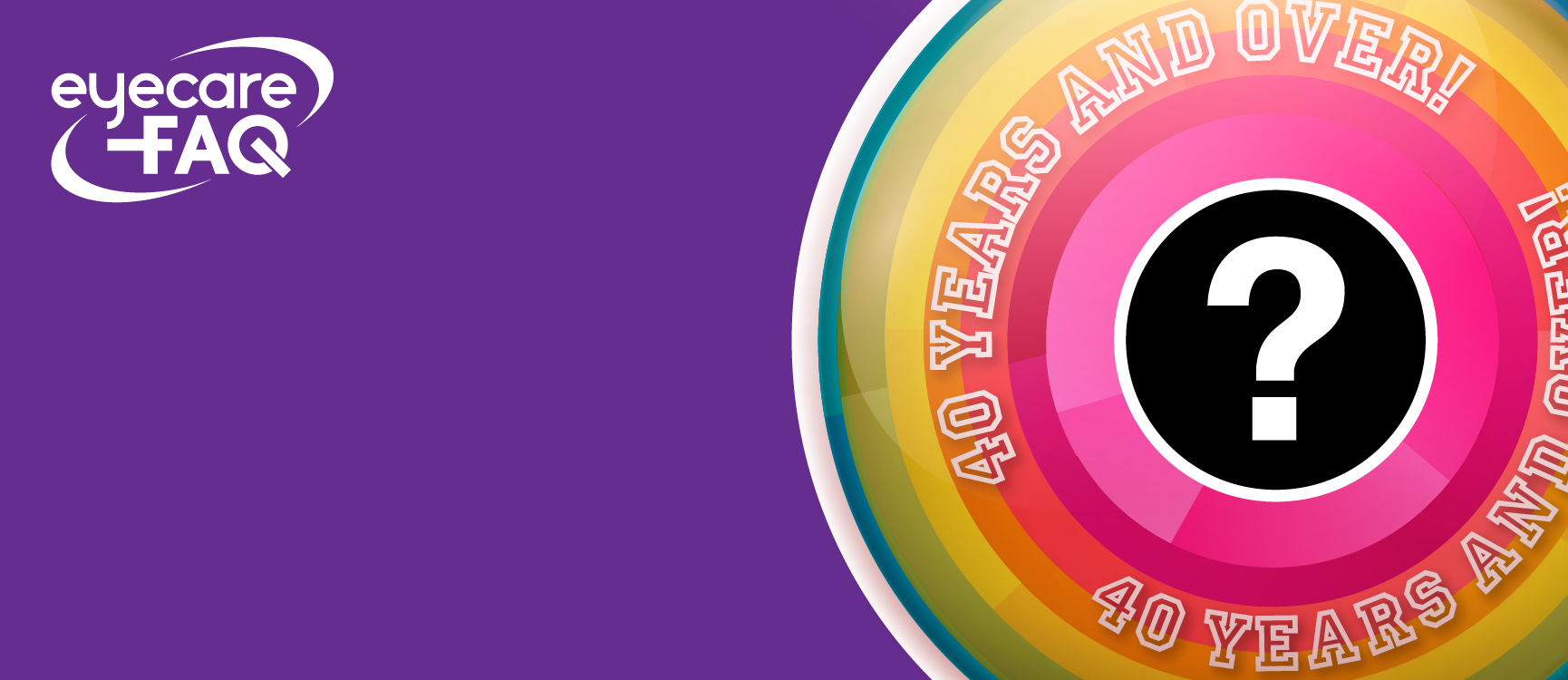Struggling to read the newspaper? Arms not long enough? Using a larger font size on your phone?
This is all normal for people in their 40s and beyond and is due to presbyopia. Presbyopia is age-related long-sightedness, which affects your ability to see things close up. It happens when the lenses inside your eyes lose flexibility.
How do you know if you have presbyopia?
Symptoms of presbyopia can include:
Presbyopia- why does it happen?
There is a flexible lens in each eye which allows you to focus on objects at different distances. As you become older, your lenses become less flexible and close focusing becomes more difficult.
What can you do about presbyopia?
Presbyopia can normally be diagnosed in a routine eye examination, where an optometrist will check your ability to adjust your focus to different distances. The eye examination is also an important check for the health of your eyes.
The optometrist will ask you about any symptoms you may have noticed, like difficulty in reading in low light, eye-strain or headaches. They will also ask you about your medical history
Depending on your medical history and age, the optometrist may also check for other conditions such as glaucoma (changes in pressure inside the eye) and diabetic retinopathy (small changes at the back of the eye due to high blood sugar).
Further vision checks will then discover what spectacle lenses may be needed. These are prescription glasses, commonly known as reading glasses.
What happens to your eyes over time?
As presbyopia is an age-related condition, it will develop as you grow older. This means that the strength of your prescription lenses may increase, so it is important to have regular eye-tests. Most people need an eye test every two years, and your optician will advise if you need to be seen more often.
You may also need a prescription to help you see better over longer distances, such as for watching TV or driving. This might mean that you need another pair of glasses. For convenience, you may choose to combine both pairs of glasses into one with bifocal or varifocal lenses. Contact lenses may also offer a solution.
Will wearing glasses make my eyes worse?
No. As presbyopia is caused by the hardening of the lenses, wearing glasses will not make your vision worse. You may notice that when you take your glasses off things seem blurry as you miss the improved vision you enjoyed whilst wearing your glasses.
Can I use reading glasses bought from a shop or on-line?
Ready-made reading glasses are available from various outlets, and may give visual support, but not as accurately as prescription glasses. Although over the counter reading glasses only provide the same prescription in both lenses. As most people have one eye that is stronger than the other they will not be accurate. Only glasses prescribed through your Optometrist will fit the prescription your eyes need.
Will wearing reading glasses help me when using computers and screens?
Yes, your dispensing optician will advise you about the best solution for glasses in the office, the kitchen or for use in your workplace (sometimes known as occupational lenses).
Whatever your concerns, the dispensing optician (DO) is here to help. A DO can answer questions about eye care, spectacle frames and lenses, contact lenses and much more. Talk to your dispensing optician today.
